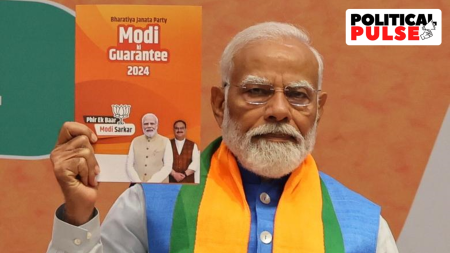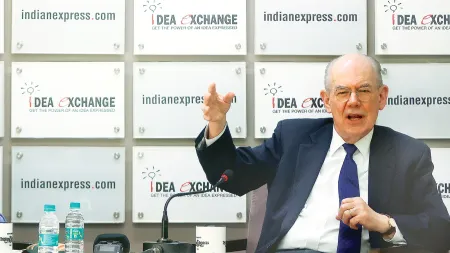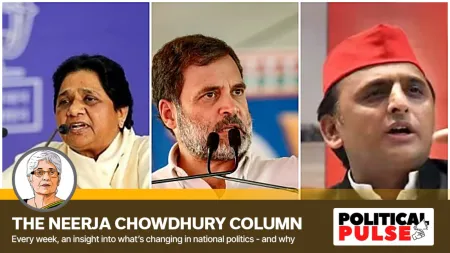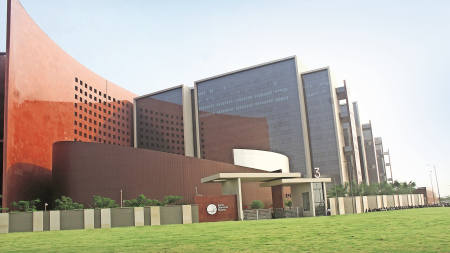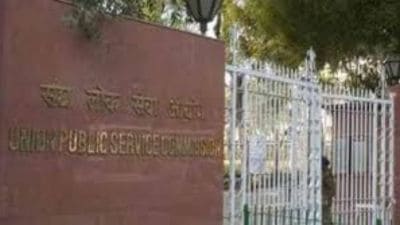- India
- International
Startup India: In 34 months, only 94 of 15,798 govt recognised ventures got tax exemptions
According to the latest available data, as of mid-January 2019, 4,648 complete applications were received for exemption under Section 80IAC of the Income Tax Act.
 According to the latest available data, as of mid-January 2019, 4,648 complete applications were received for exemption under Section 80IAC of the Income Tax Act.
According to the latest available data, as of mid-January 2019, 4,648 complete applications were received for exemption under Section 80IAC of the Income Tax Act.
Even as the government expects the latest revision in Startup India scheme to provide a booster shot to around 16,000 recognised startups with easier access to tax breaks under the programme, the track record of new ventures gaining exemptions shows the possible reason behind the Centre’s decision to provide the breather. Out of 15,798 startups recognised under the flagship scheme as of February 7, only 94 have been certified by the Department for Promotion of Industry and Internal Trade (DPIIT) for income tax exemption under Section 80IAC of the Income Tax Act. According to the latest available data, as of mid-January 2019, 4,648 complete applications were received for exemption under Section 80IAC.
On Tuesday, the government widened the definition of startups, in effect extending the period for availing benefits under the scheme to ten years from the previous seven-year duration. The decision is expected to stop companies considering migration to other destinations, and boost investments into startups, according to industry experts.
Under Startup India, tax exemption is available to startups for two aspects — income and investment raised. Income tax break is available to these companies and partnerships under Section 80IAC, where startups can avail income tax exemptions for three years in a block of seven years if they have been incorporated between April 1, 2016, and March 31, 2019. The second aspect of tax breaks under the scheme — startups and their angel investors are allowed exemption under Section 56(2)(vii)(b) of the Income Tax Act as per which closely-held companies, when issuing shares, are charged 30 per cent tax on the difference between funds raised as per the actual valuation and the fair-market value of the company. This, within the startup community, is known as the angel tax.
According to DPIIT secretary Ramesh Abhishek, it is Section 56(2)(vii)(b) that has been the main pain point for startups seeking tax exemptions. “That problem we have solved substantially by increasing the limit (of exemption) to Rs 25 crore and there is no process of application or approval. They (startups recognised by the government) just have to give the declaration and they will be exempted by the department in the system,” he told The Indian Express.
“You have to be really proposing something innovative to seek exemption under 80-IAC,” he said, adding that, in comparison, exemptions under Section 56(2)(vii)(b) are required by every startup.

Earlier, in order to avail both these tax exemptions, DPIIT-recognised startups had to undergo a screening mechanism of Inter Ministerial Board (IMB), which has been cited as being rigorous and thereby contributed to the delays.
The government had already moved to ease certain norms under the scheme last month, as per which startups need not go through the IMB to claim breaks under Section 56 (2) (viib) of the Income Tax Act and, instead, new applications will be directly evaluated by the Central Board of Direct Taxes (CBDT). Firms will have to submit their applications through the DPIIT website, after which it will be forwarded to the CBDT, which has also been mandated to evaluate and respond within 45 days of receiving such applications.
In Tuesday’s notification, the government contracted the IMB to a three-member panel comprising a DPIIT joint secretary, and representatives of departments of biotechnology and science & technology. In a notification dated April 11, 2018, the government expanded the IMB into an eight-member board to include an additional secretary of the then DIPP as its convenor, along with representatives from ministries of corporate affairs, electronics and IT, departments of science and technology, biotechnology, and from CBDT, RBI and Sebi.
In order to provide tax exemption, the startups were scrutinised for innovativeness and potential for job creation but this “rigorous screening” has translated only into a minuscule proportion of total recognised startups being exempted for tax purpose by IMB.
Buzzing Now
Apr 16: Latest News
- 01
- 02
- 03
- 04
- 05




